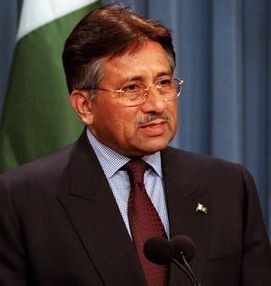In the long list of ominously difficult foreign policy choices facing America, the question of how to deal with Pakistan ranks near the top. As in the case of Iraq -- the undisputed first item on that grim list -- all the choices look bad. And, also as in Iraq, taking the wrong path could help unleash dangers that make today's threats look tame by comparison. In all matters related to Pakistan, one fact looms large: Pakistan has nuclear weapons. With instability increasing there, policymakers cannot ignore the risk of a takeover by Islamic extremists. We don't know how likely that is, but the threat that jihadists could become armed with a nuclear arsenal sends shivers down the spine of even the coolest Western strategists. Pakistan's dictator, Gen. Pervez Musharraf, has cleverly exploited that fear, positioning himself, at least on the surface, as the bulwark against Islamic extremism. After the 9/11 attacks, the general, who is also president of the country, did provide indispensable assistance to the United States in the early weeks of the war in Afghanistan. Musharraf's cooperation was crucial in facilitating the overthrow of the Taliban regime, which his own security services had helped install in neighboring Afghanistan. Since then, however, Musharraf's role has looked more murky. With elections scheduled for January and the future of Pakistani politics very much in flux, it is unclear whether Musharraf is helping or hindering the stalled efforts to root out the Taliban and their ideological brethren.
Pakistan: The General and His Labyrinth

